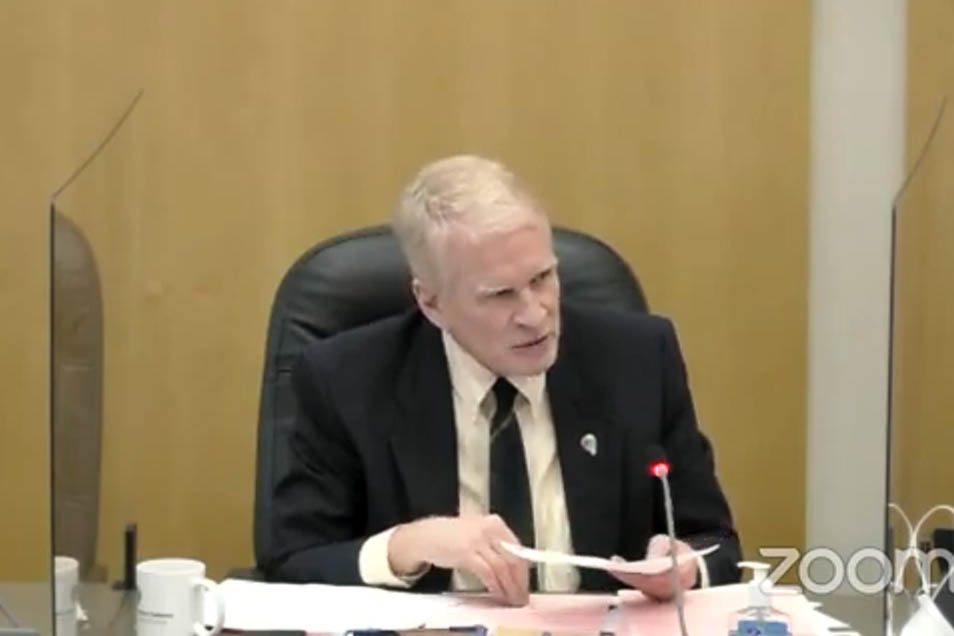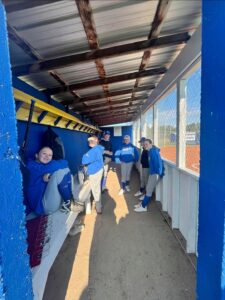
During a recent Northern Gateway Public Schools Trustee Meeting, board members discussed the variables around raising transportation fees for grant-ineligible students. Superintendent Kevin Bird explained that the proposed rise was “in keeping with our regular practice to make an increase base upon, more or less, inflation over the period of the next year.”
He stated that school fees are something that he spends a lot of time “scrutinizing” to make sure that “we are charging reasonable amounts and for the right reasons.” Bird explained that the reason the fee increases is because every time they add a student to a bus rotation, they owe the contractor money for that student. “The cost of doing that is a little bit hard to calculate because it involves many factors across many communities. What we’ve arrived at here is a number that takes into account the average cost of adding a student throughout our communities. (In) some communities, it’s a little bit cheaper to add a student because of the geography and the closeness of buildings and our infrastructure, and in some communities, it’s a little more expensive to add a student. We sort of average that out.”
Bird said that the number $600-$700 has floated around the office as the approximate cost to bus a student. “While that number is true, the purpose here is not to have these passes reach that number at all. These students do not significantly alter the overall cost of providing transportation, but they do alter the small cost of providing transportation, so we’re not chasing that $600-$700 number with these all we’re doing is cost recovering for the students when we add them based upon our contractor’s needs in the contract.”
He said that the recommendation also included rounding up the fees so that costs didn’t require change. The proposed increase would see the annual bus pass for grades 1-12 go from $371 to $390 per student. The Early Childhood Services (ECS) cost per pass depends on if the student is half-day or full-day. A full-day student cost would be the same as the regular bus pass mentioned above, while the half-day price would increase from $185 to $195.
“If a family has several students who are riding the bus, they pay to a maximum of $975. Replacement passes are $6.50, and that takes into account the time it takes of our staff to replace those passes when they are lost and also places a bit of an emphasis on not losing them, which creates issues within the efficiencies of our structures” explained Bird.
He said that one of the more significant changes proposed had to do with the alternate seat passes and fees for ECS students. “They have not gone up the same amount and have actually become the same as the regular passes, so the alternate passes and the regular passes are now the same price. They used to be between $10 and $15 more, and we’ve looked at that and don’t find a reason for that now. So, all passes are now the same exact fee.” Bird stated that the goal was not to make money. “The goal is a break-even on these. When we add students, it costs us money to have them transported, and our goal with these is simply to recoup that money so that we aren’t subsidizing extra riders on our bus system.”
Trustee Steinke wanted more information on how the contractor charges the school board for picking someone up within the 2.4km walk zone or if they have an alternate seat pass and are dropped off somewhere else on the route. Bird said that it came down to not owning their own buses. Having worked with school divisions previously that owned a fleet for transporting students, he could see how it worked on both sides. “Because we don’t own our own buses, we have a contractual cost when we add a student to a bus. So, the student that we are picking up, even though they are not very far away, there’s a cost. There’s mileage pieces, and of course, there are also administrative pieces. When we add up all the riders who are not funded who are riding our busses, that does place a burden on our administration, so we have to employ more people to work through the numbers of people who are riding the bus, and it’s increased by these riders. So, potentially, we could cut back on staff if we didn’t have so many people riding the bus.”
Bird explained that divisions who own their own buses don’t have the same problem. He said that if bus drivers picked up students that are not funded, it wouldn’t actually increase the cost of transportation because the buses are already running.
“If we owned our own buses, this cost could probably be a little bit different because we could figure out that actually every rider we added wasn’t really costing us money and therefore we’re actually saving money by having more riders, so we would probably actually want a lot of riders, and we would fill up the buses because we would reduce our overall transportation costs. But, because of the fact we are contracted, every time somebody has a seat on that bus, not unlike on an airplane, we have to pay more money out for it.”
Turning back to the costs, Bird said that the $390 fee is not a direct cost but rather a mid-point. “There is some inference work that goes into that to establish that cost. It’s the people in the department looking at the overall costs and then trying to find a number that matches across our communities to provide us with the money we need to transport all of these students and administer the whole program.”
The question of students who have a permanent seat on one bus, who then go somewhere other than home and take up a seat on another bus, was then brought up. Bird explained that an alternate seat pass is needed because, technically, the student is taking up two seats. “Our requirement from the government is that there is subsidized travelling from home to school and back again so if they are travelling somewhere else they’re taking up another seat, so there is a fee charged for that other seat. It’s not so different than an airline in my mind. If you take up two seats, then each of your seats needs to be paid for because it’s a seat that somebody else can’t be in,” said Bird.
The discussion ended with the decision to table the vote until the next meeting so that Trustees could hear more on the financial side in-committee (privately).







More Stories
Community spirit shines at large-scale youth baseball event
Birthday party chaos sung beautifully by Pumpjack Players’ youth in spring musical
Gearing up for another season of cars, cruising and camaraderie